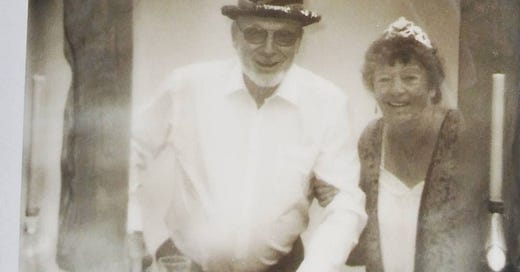I was already half-way through Melissa Broder's novel ‘Death Valley’ when my paternal grandmother passed away. This seemed apt but also maybe I was always reading morbid literature. Broder's semi autobiographical-fictional character interacts with the Bulgarian receptionist at a Nevada Best Western, the narrator's father is in the ICU and has almost died twice at this point in the narrative; the receptionist talks of her own father's death of how Americans don't get grief, all that space and nowhere to put it she says, in Bulgaria she says mourners claw at the coffin, scramble in the dirt, have to be held back as they attempt to throw themselves six- feet down. (You can sub America for Britain here - all of Ireland excluded - less space of course but still not enough ritual.) The Bulgarian way reminds me of ‘Hamlet’, Hamlet and Laertes leaping into Ophelia's grave, lover and brother soap-opera like, competitive grieving. So in Denmark at some point this was the way to grieve, perhaps? In Shakespeare's imagination this was the way, definitely. Hyperbolic, or perfectly appropriate considering?
Elsewhere, now:
Shiva. Wake. Smoking ceremony. Offerings/Ofrendas. Marching band. Caracas and calaveras. Moksha. Bardo Thodol. Gospel. Bon Odori/Dance. Chanting. Senkotsu/ Bone washing. Month to year- long mourning dress. Keening. Procession. Parade. Famidihana/Skeleton dance. Wailing.
Here, now: a paltry Out of Office on for a few days. Maybe. A directive to arrange what requires arrangement, bureaucracy, the paraphernalia of death, then move on, stoicism admired, get back to normal. A fictitious state. OK. Just fine.




